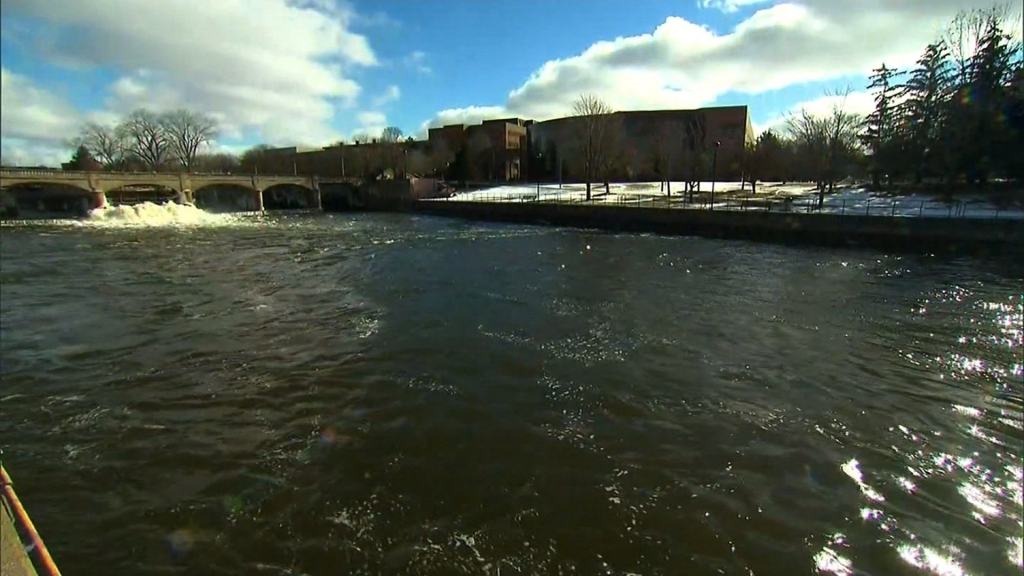-
Tips for becoming a good boxer - November 6, 2020
-
7 expert tips for making your hens night a memorable one - November 6, 2020
-
5 reasons to host your Christmas party on a cruise boat - November 6, 2020
-
What to do when you’re charged with a crime - November 6, 2020
-
Should you get one or multiple dogs? Here’s all you need to know - November 3, 2020
-
A Guide: How to Build Your Very Own Magic Mirror - February 14, 2019
-
Our Top Inspirational Baseball Stars - November 24, 2018
-
Five Tech Tools That Will Help You Turn Your Blog into a Business - November 24, 2018
-
How to Indulge on Vacation without Expanding Your Waist - November 9, 2018
-
5 Strategies for Businesses to Appeal to Today’s Increasingly Mobile-Crazed Customers - November 9, 2018
Inquiry finds State ‘fundamentally accountable’ for Flint water crisis
In a comprehensive report released Wednesday, the task force appointed by Michigan Gov. Rick Snyder (R) primarily blamed the state’s emergency manager law that gave state-appointed managers wide-ranging authority over Flint’s affairs, including the decisions to switch the city’s water source and not switch back to Detroit’s water for more than a year.
Advertisement
“It was a mixture of ignorance, incompetence and arrogance by many decision makers that created the toxic and tragic situation”, Chris Kolb, task force co-chair and president of the Michigan Environmental Council, a coalition of non-profit groups, said at a press conference in Flint.
Michiganders have hotly debated who was responsible for tapping the corrosive Flint River as a drinking water source, but the report makes it clear that the emergency managers, not locally elected officials, made the decision.
Snyder said numerous task force recommendations were already being implemented by the state.
The state – and, by obvious extension, the governor – shoulders the bulk of the responsibility for the fiasco that tainted the city’s drinking water with lead and for too long ignored likely connections to an outbreak of Legionnaires’ disease that killed 10 people and sickened 87. It is incomprehensible to me that the Governor continues to sit on a billion dollars that he doesn’t know what to do with, between the state’s Rainy Day fund and projected budget surplus. The law removes checks and balances that could have scrutinized or stopped bad decisions made by four separate EMs in Flint.
The report also blames the Environmental Protection Agency of delaying enforcement of the Safe Drinking Water Act and Lead and Copper Rule, which prolonged the effects of the water crisis.
The Flint water crisis report was authored by an independent panel investigating the crisis, reports NPR, and one of the major conclusions in the report suggests that local, state, and federal government officials were to blame for their failure to address or adequately notify residents of the poisonous water. Flint Mayor Karen Weaver said documents were found scattered around the room, making it impossible to know what, if anything, was stolen.
The state DEQ failed to require the addition of needed corrosion-control chemicals as part of the treatment process, and the corrosive Flint River water ate into pipes, joints and fixtures, sending unsafe levels of lead into Flint homes and businesses. After the April 2014 switch, residents complained their water looked, smelled and tasted amusing. Unlike other former Detroit Water and Sewerage Department customers who joined the KWA, the City of Flint and the DWSD were not able to agree on an interim price for Flint to continue receiving Detroit water until the KWA was completed.
Those include the Michigan Department of Health and Human Services, the U.S. Environmental Protection Agency, the Genesee County Health Department, the city of Flint and financial managers that Snyder named to run the city of almost 100,000 people.
Advertisement
Ensure that communications from all state agencies are respectful, even in the face of criticism, and sensitive to the concerns of diverse populations.





























